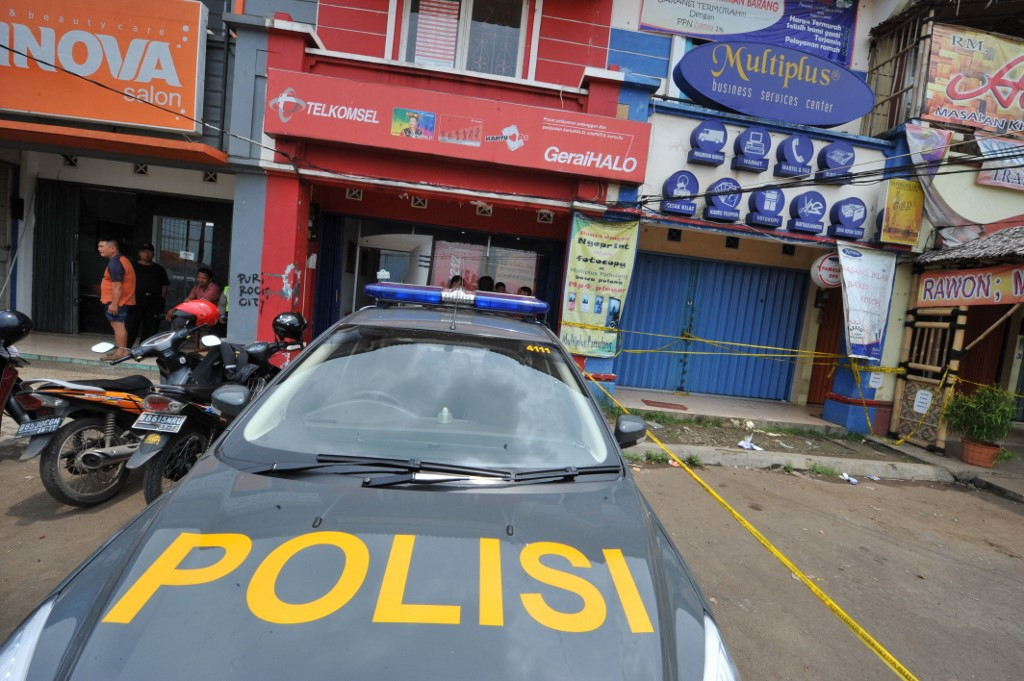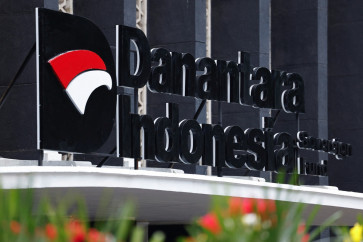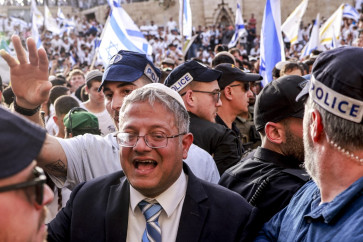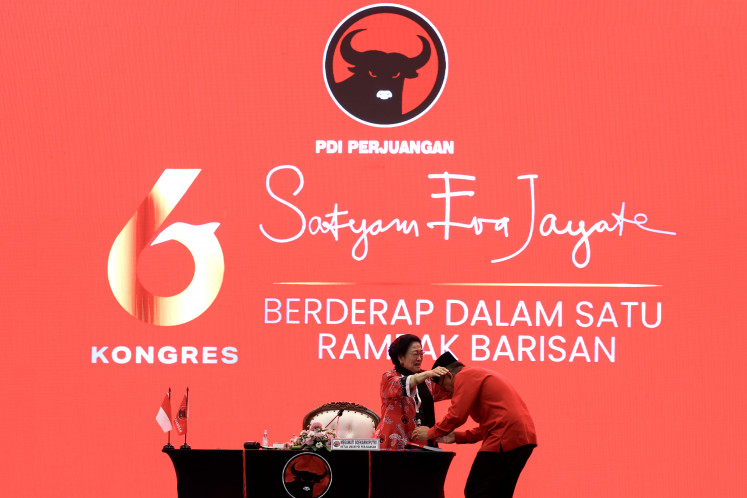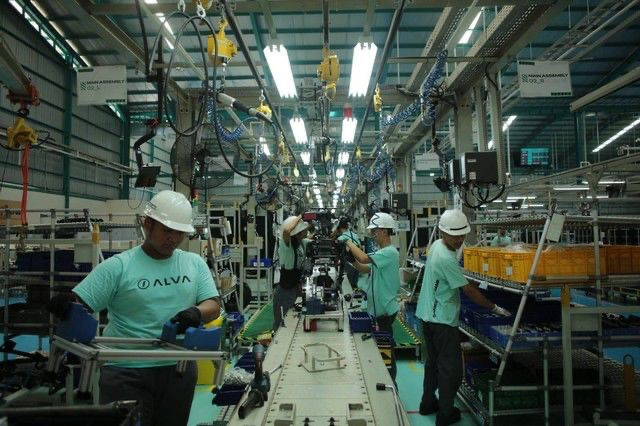Popular Reads
Top Results
Can't find what you're looking for?
View all search resultsPopular Reads
Top Results
Can't find what you're looking for?
View all search resultsPolicing monopoly: Serving and protecting whom?
Most good drivers yield to a police car speeding its way along the country's roads, lights blazing and siren blaring, and even to nonofficial vehicles with a police escort. But are they really serving and protecting the public?
Change text size
Gift Premium Articles
to Anyone
O
ne minor inconvenience that is common among urban residents around the world is that sometimes, we have to slow down, stop or pull over while driving to give way to emergency vehicles like ambulances, fire trucks and hearses.
In Greater Jakarta, we also must give way to official vehicles bearing the livery or the license plates of the National Police (Polri) and the Indonesian Military (TNI). As any person who regularly drives in the city knows, once these vehicles are headed their way, speeding with their deafening klaxons and blinding strobe lights or light bars, like it or not, everyone has to make way.
Oftentimes, even on the most congested thoroughfares, these vehicles zoom past the logjam, like the way Moses parted the Red Sea.
While we gaze after them in awe and wonder, we generally consider the disruption as nothing more than a slight inconvenience. If anything, we'd rather believe that the officers inside the speeding car are on some important mission: hunting down a fugitive, rushing to a crime scene or dashing to save lives in a road accident.
But several revelations from the National Police’s investigation into the murder of Brig. Nofriansyah Yosua Hutabarat have shown us that this is not always the case.
We now know that the police ambulance, vehicles carrying police detectives and other escort vehicles that traveled from the official residence of former internal affairs Insp. Gen. Ferdy Sambo in Duren Tiga, South Jakarta, to the National Police Hospital in Kramat Jati, East Jakarta, were in fact part of a cover-up.
It can also be speculated that the dozens of detectives who traveled to and from Sambo’s residence since July 9 could have been transporting some key pieces of evidence related to Yosua’s murder, including CCTV footage that were initially said to be missing during the preliminary investigation.
Now that some of the footage has been retrieved, we also know that an SUV, similar to those we often see, speeding down the road with a police escort, was transporting Sambo’s wife, a key witness in Yosua’s murder.
We also know from the CCTV footage leaked to the public that the same SUV had a police escort since it left Magelang in Central Java until it arrived at Sambo’s residence on the evening of July 9.
While an argument can be made that the wife of a senior police general deserves all the perks of being chauffeured around in a luxury SUV, she certainly was not on some urgent business that day that required a police escort.
From what we have learned so far in Yosua’s case, we can legitimately ask: Could it be that some SUVs with a police escort, even those bearing police license plates, are in fact transporting the wives, children, nieces and nephews of high-ranking police officials on a personal errand that has very little or nothing at all to do with any police business?
Or worse, based on the revelation that Sambo was allegedly involved in shady activities, what if these vehicles are being used to facilitate criminal activities or carry out crimes?
With public trust in the police at an all-time low in the wake of Yosua’s murder, these and other related questions will surface and haunt the institution unless they embark on major internal reform, including ethical and organizational reform.
But before this, the police could at least do something about the inconvenience they cause to all drivers in the city by providing official escorts to cars carrying nonofficial persons.
Law No. 22/2009 on traffic and land transportation is one regulation that gives the National Police the autonomy to decide what issues matter most to the public.
Article 134 of the law stipulates six types of vehicles that are eligible for a police escort: fire trucks, ambulances transporting patients, emergency ambulance services, vehicles transporting high-ranking state officials, vehicles transporting state leaders and hearses.
Yet, this article also leaves it to the police to decide which persons they think are worthy of getting a police escort.
We can assume that it is through this “loophole” that Sambo’s wife, who was in Magelang for personal reasons, received special treatment.
The issue of deciding who is eligible for a police escort might sound trivial, but this reflects a major problem plaguing the National Police, and one that has plunged the institution into the crisis it is facing today.
Over the past 20 years, the National Police have been given too much power to govern its own affairs without much external oversight.
The National Police falls under the President, but since the President is not a state body, it falls to the police to manage policing, from drafting the laws, designing reforms and to administering the institution’s budget, all the while serving and protecting the public.
In her doctoral thesis, “The Rise of Polri: Democratization and the political economy of security in Indonesia”, Jacqueline Baker of the London School of Economics writes: “Polri have established an effective monopoly on policing in the republic.”
So next time you see a speeding police car forcing you to yield, don’t just assume that the officers inside are on a mission to serve and to protect.

